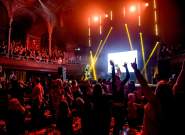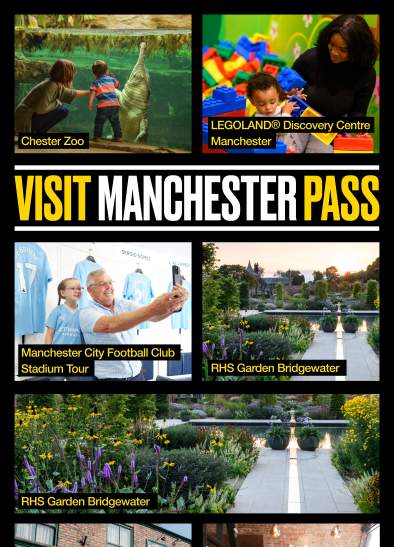A Symposium exploring ‘The Gothic 1980s: The decade that scared us’ will be held at Manchester Metropolitan University on Saturday 8th June – and is now is calling for papers, with the deadline being Friday 29th March 2019.

But why the Gothic grip on a decade many see as a time of electronic dance music, brash pop culture and new technology? ‘The Gothic 1980s: The decade that scared us’ is a symposium determined to stretch beyond the stereotypes attached to the era and invites participants to delve into the themes of what was ultimately a divisive, often dark, and certainly fascinating, decade.
In turn, this is anticipated to be an intriguing symposium at Manchester Metropolitan University, and although the exact location on campus is yet to be announced, the day itself is expected to be popular, with attendees and speakers delving into how the infamous boldness of the 1980s could actually have a much darker core.
Although the 1980s did see a surge of colour television, big hair and even bigger consumer cycles, it also could be seen as time that foreshadowed the fragmentation and discontent our current society. There were ever-increasing expressions of fear and want for security, not just highlighted through ‘stranger danger campaigns’, media spectacle, 24 hour news cycles, and numerous ‘shocking’ TV specials, but also evinced in new cultural expressions. Manchester itself in the 1980s could be considered as cultivating Gothic themes of its own, with growing reports of urban alienation and inner-city violence all influential at this time.
As well as revisits to horror movie characters (and often carried on in the form of follow-ups or sequels) like Chucky, Leatherface, Freddy Kreuger and continued taste for slasher films, the 1980s also saw more elements of the weird and wonderful move in.
Three key films were released in 1984: Threads, The Terminator and Ghostbusters – highlighting an interest in breaking boundaries and exploring unnerving content in different formats. This was aided by increased and explicit special FX in film and the popularity of ‘plastic reality’, meaning that filmmakers in particular were taking more risks.
It was this riskiness however which roused controversy and even revealed new cultural divides, as some sections of society struggled to accept the dark depths being exposed, the imagination meeting uncomfortably with actuality. The 1980s has also been seen therefore as the age of ‘video nasties’ – with film content increasingly censored and subject to outcry, with the PG13 certificate, the Parental Advisory sticker, and the 1984 Video Recordings Act all introduced.
And not just a time of culture wars, the 1980s was notably a decade of dealing with the looming threat of Cold War and nuclear struggles. It is perhaps no wonder that this contributed to a climate of fear and strain, which manifested itself across situations of famine, political protest and distrust of government across the world. In turn, a number of books and films from this period carry a pervading dystopian quality, dark themes and anxiety about the future – aspects the symposium is set to encounter.
In turn , the 1980s could be seen as an era with almost uncanny relevance to current themes of cultural divide, confusion and uncertainty. This is underlined in that recent years have seen a resurgence of retro-Gothic nostalgia such as in the form of Stranger Things (2016 - ), IT (2017) and Ready Player One (2018). And ever wondered why Hollywood has seems to have an ongoing affection for films originally made in 1980s including A Nightmare on Elm Street; Halloween, Poltergeist, Friday the 13th and Hellraiser – with a number of remakes seen recently?
, the 1980s could be seen as an era with almost uncanny relevance to current themes of cultural divide, confusion and uncertainty. This is underlined in that recent years have seen a resurgence of retro-Gothic nostalgia such as in the form of Stranger Things (2016 - ), IT (2017) and Ready Player One (2018). And ever wondered why Hollywood has seems to have an ongoing affection for films originally made in 1980s including A Nightmare on Elm Street; Halloween, Poltergeist, Friday the 13th and Hellraiser – with a number of remakes seen recently?
According to its organiser Dr. Sorcha Ní Fhlainn (pictured left), Senior Lecturer in Film Studies and American Studies at Manchester Metropolitan University and also a founder member of The Manchester Centre for Gothic Studies:
“The 1980s is seen as an extremely important cultural decade that brought about distinct fissures that remain relevant today—in our media, in our politics, and in Gothic and horror cultures—and is in need of scholarly examination and reinterpretation.
“Growing up in the 1980s, it was a golden period for Gothic and Horror studies and dark fantasy, across film, literature, music and gaming, but it was equally a nightmarish reality in terms of its social, economic, and political discontents. This symposium, as part of a larger study I am conducting on the decade, seeks to reinterpret and analyse its texts, contexts and iconography in order to examine the decade's delights and horrors in literature, film and popular discourse.”
‘The Gothic 1980s: The decade that scared us’ will explore the haunting relevance of the 1980s, its Gothic connections and resonance now. The darkness of the decade as a distinct disjuncture in recent cultural history is a key area up for discussion. Submissions for papers are now open until Friday 29th March 2019, and topics may include but are not limited to:
· The 1980s and Postmodern Gothic
· The ‘serial killer’ decade in popular culture (TV culture, cases, Ramirez, Bundy, Nilsen etc.)
· Gothic politics (i.e. neoliberalism/deregulation etc)
· Remaking (and revisiting) 1980s films and aesthetics today
· 1980s film and TV industry practices (sequels, mini-series, film to TV adaptations etc)
· Explicit versus implicit Gothic horror/terror
· Gothic Literature of the 1980s
· Film and TV adaptations of 1980s texts
· 1980s Gothic music and subcultures
· Nostalgia for 1980s Gothic programming
· Analogue vs digital Gothics (including VHS culture)
· Gothic games (i.e board games/computer games etc)
· Film franchises/reboots/remakes
· 80s Fantasy Gothics
Abstracts – as well as any questions about the symposium - should be sent to to Dr. Sorcha Ní Fhlainn, Manchester Centre for Gothic Studies, Manchester Metropolitan University at gothic1980s@gmail.com by the deadline date.







